With the passing away of Naushad, the city of Lucknow has lost a great son. There is a district called Barabanki to the east of Lucknow, and it has an ancient dargah of Haji Waris Ali Shah called Dewa Sharif. I have had the good fortune of visiting the shrine, and they say Naushad was positively influenced by the Sufi music of the qawwals here. For those not in the know, a Qawwali is a form of devotional Sufi music which in its modern day form can be traced to Amir Khusro. He too, was born in Uttar Pradesh, which makes you think, here is the state that led in culture, led in music, gave the film industry its great luminaries in Naushad, Kamal Amrohi, Amitabh Bachchan, and today it is but a shadow of what it was.
I am a big fan of old Bollywood, and spend considerable time searching and collecting them with the limited resources that I have, and I can safely vouch for this, most of what Bollywood produces today can't even come close to what these great composers dished out. I mean, how can anyone compete with some of the music of Shri Naushad ji? Heard of Mughal-e-Azam? He gave the music to it, and there is a famous qawwali in that movie as well, "yeh ishq ishq hai."
Then there is Mother India, another classic. Then there is Pakeezah which he completed after Ghulam Mohammad's death, and Baiju Bawra, classics all the way yo!
Naushad passes away in Mumbai; from Barabanki, qawwal mourning
At the dargah of Haji Waris Alis Shah in Barabanki’s Dewa Sharief, the qawwals are mourning the death of a musical legend who started his journey here.
On Friday, they began their evening recital with, ‘‘Khuda gawah hai jo kuchch hai mere daaman mein kisi ki den nahin..., the favourite of Naushad, one of Indian film music’s greatest composers, who died at the age of 87 in Mumbai today.
Naushad moved from Lucknow to Mumbai in the late 1930s to try his luck in films. Initially, he had to struggle and even had to spent nights on the footpath.
But never did he forget his Lucknow past. At Allan Sahib & Sons in Lucknow, from where he received his first harmonium from the owner, they are reliving his memories. Recalls Azmatullah, whose grandfather had given the maestro his first peti: ‘‘Naushadsaab was always full of memories of Lucknow, of Lal khan ka haata and Royal Talkies (now Mehra cinema) where he began his career as an orchestra artiste playing the harmonium as a background score for the silent movies.’’
Unforgettable
Five of the music legend’s best remembered films
Naushad experimented with bhajan and qawwali for the first time, using Bade Ghulam Ali Khan and Lata Mangeshkar. It is said that Naushad was the only composer whose name appeared above the film’s title on hoardings.
Situational numbers were resonantly relevant to the plot of the film, such as the Lata Mangeshkar-sung Nagri nagri dware dware and Duniya mein hum aye hain.
Composed the background music and is said to have completed the remaining compositions after Ghulam Mohammed’s sudden death.
Mere Mehboob
His detractors said Naushad was only audio-visually identified with Dilip Kumar, so he did this film with the newest superstar Rajendra Kumar and still delivered his best.
Baiju Bawra
A historical milestone as Naushad introduced Hindustani classical music to cinema lovers and broke the myth that classical music could not appeal to the masses.
--------------------------------------------------------------------
When I think about the great music and movies that were produced in our yesteryears, I can't help but consider some of the trash that is produced today. That is not to say we do not have good movies and good music coming out today, but what it seems to me is that apparently popular mainstream movie means it needs to have lots of nudity, jarring music, and a simple story line (read no story line). We have good actors and musicians in our time, but I would consider them an exception, not the norm. For example, I was at a friends place a few days ago and there was a Hindi movie on, pretty latest one, and I saw them act, it was a comedy scene, and I almost threw up. They had no concept of smoothness. They were loud, monotonous, and it just didnt work.
But for him, I would not have been: Lata
I reached the top because of Naushad Saheb. I have had a long musical journey with him. I started working with him in 1948. Guddu was the last film in which I sang for him.
In the beginning, I faced difficulty pronouncing Hindi words. He told me if I got them right, the sky would be the limit for me. You also got a lot of freedom working with him. I always called him Bade Bhaiya; he, too, considered me his younger sister.
With his death, an era has ended. It was typical of him to compose simple, beautiful tunes based on complicated ragas: even the common man could sing his songs.
His experimentation with classical music is unmatched. He had an eye for the smallest of details. He was particular about how every single word was to be handled in a song.
Although I like all his songs, my favourites are those from Mughal-e-Azam and Baiju Bawra. As a person, he was a noble human being. He would be the first to come to the aid of someone in difficulty. He was very respectful towards artistes and would never utter a word that could hurt anybody.
-------------------------------------------------------
You will be missed sir, but your music will live on forever."The lord is my witness that whatever I have is not a gift of others...."
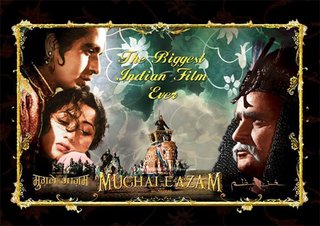
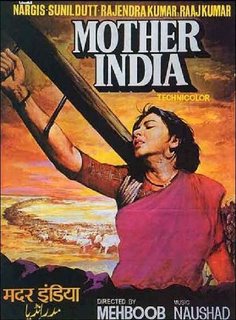
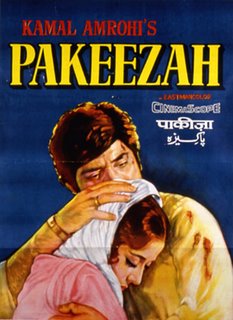
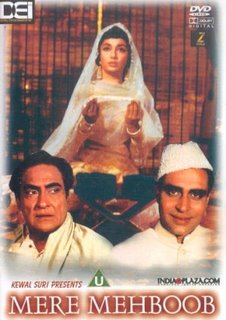
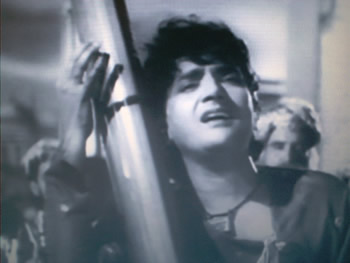
No comments:
Post a Comment
Comments are welcome!